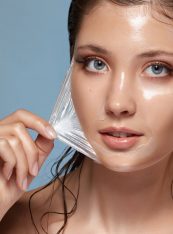Chemical peel is a cosmetic treatment that involves the application of a chemical solution to the skin to exfoliate and improve its appearance. The solution causes the outermost layers of the skin to peel off, revealing smoother, brighter, and more youthful-looking skin underneath. Chemical peel treatments can be tailored to address a variety of skin concerns, such as acne, wrinkles, sun damage, and hyperpigmentation.
There are three types of chemical peels: superficial, medium, and deep. Superficial peels use mild acids like alpha-hydroxy acids (AHAs) and beta-hydroxy acids (BHAs) and are the gentlest option. Medium peels use stronger acids like trichloroacetic acid (TCA), while deep peels use phenol. The depth of the peel depends on the type of chemical used and the concentration of the solution.
Chemical peels are generally safe when performed by a trained and experienced professional. However, they can cause some side effects, such as redness, swelling, and peeling, and carry some risks, such as infection and scarring. It’s important to discuss your skin concerns, medical history, and expectations with your provider to determine if a chemical peel is the right treatment for you.


